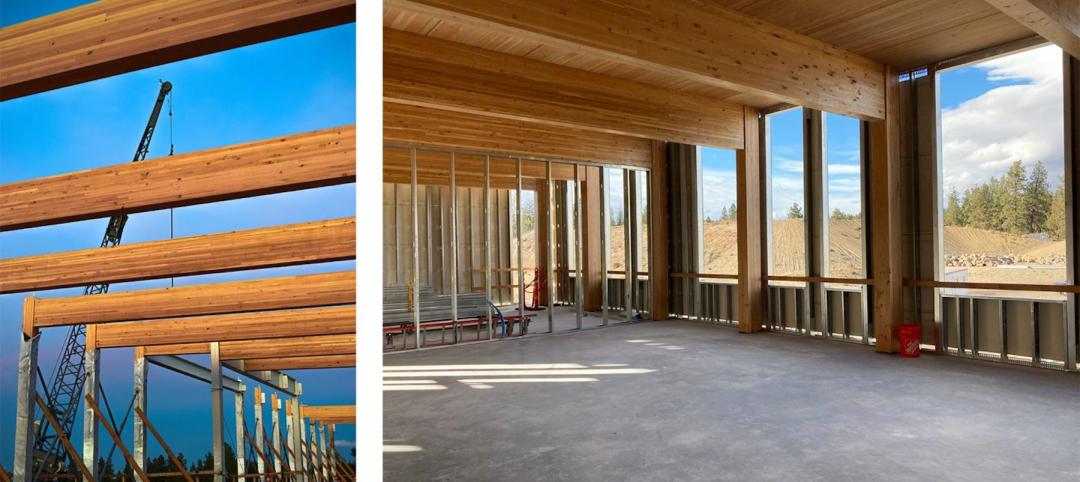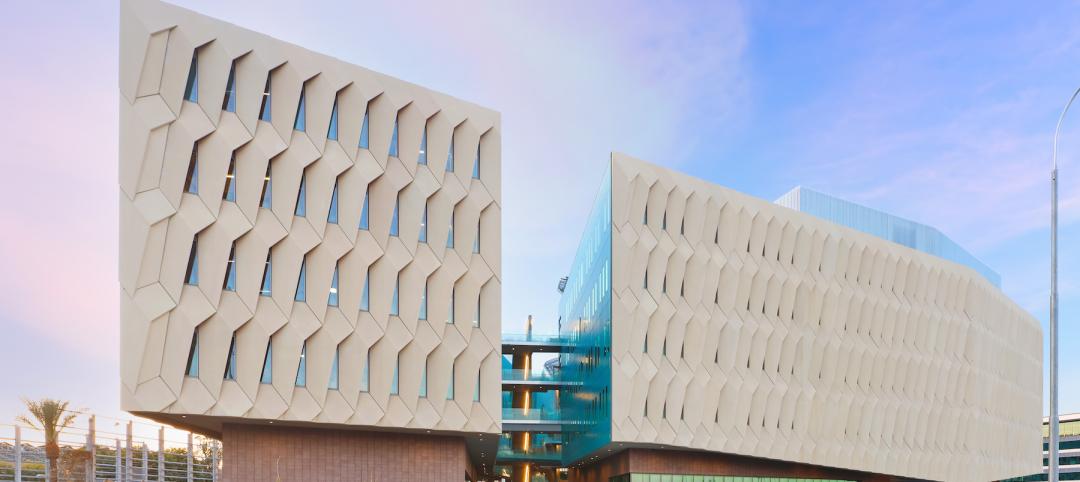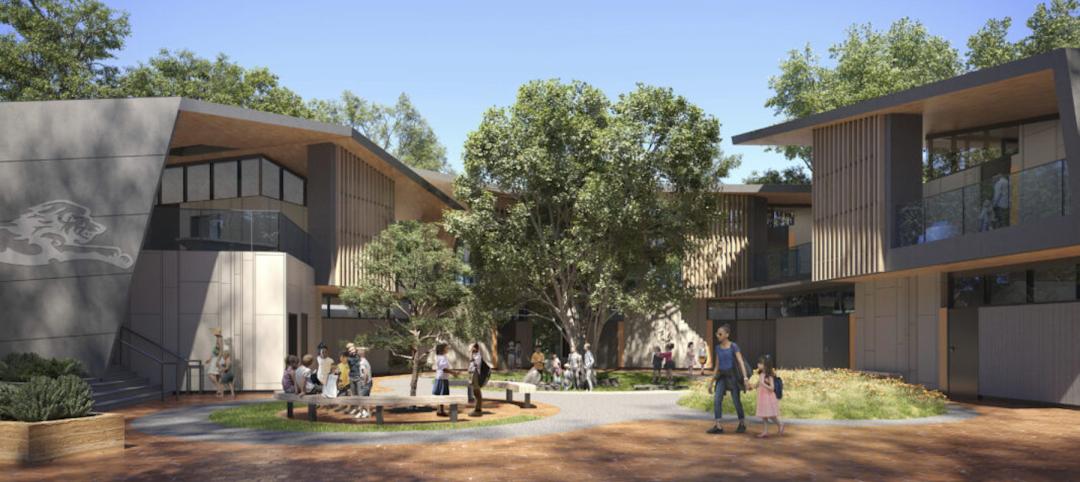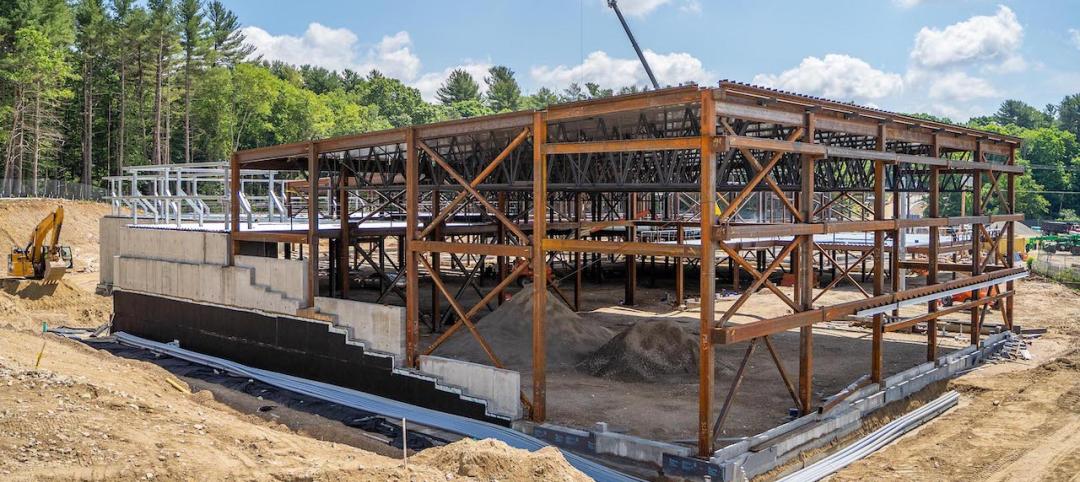Founded in 2009 with an initial endowment of $1.9 million, HMC’s nonprofit Designing Futures Foundation (DFF) has donated about $230,000 in its three years of existence, including $105,000 in scholarships to California students. The grants help promising high schoolers with an interest in architecture, design, engineering, education, or healthcare pay for expenses like test preparation services, computers, and college entrance exam fees and tuition. The scholarships can be extended for up to five years of college.
Executive Director Adrienne Luce says the foundation serves as an extension of HMC’s social responsibility. The DFF’s Community Project initiative provides grants of up to $10,000 to HMC employees for projects for that benefit the communities in which they live and work.
For example, three HMC employees—Pablo La Roche, PhD, LEED AP, Sustainable Design Director; Eera Babtiwale, LEED AP BD+C, Environmental Analyst; and Sandy Kate, REFP, LEED AP, Associate Principal/Senior Education Facilities Planner—proposed a sustainability education program at McKinley Elementary School in Santa Monica. The DFF sponsored nine workshops for 220 McKinley students in grades 3-5 over three days, providing 13½ hours of instruction on energy, water, and waste.
The DFF has funded scholarship programs at Ramona High School, a healthcare academy in Riverside, Calif., and at the Center for Advanced Research and Technology, in Fresno. The DFF also supports Bright Prospect, a college access and retention program in Pomona, and hosted a career day for students aspiring to become architects, engineers, or designers, topped off by a tour of the Ontario office.
Scott Plante, AIA, LEED AP, Senior Project Designer, won a $7,500 DFF grant to help restore the historic Micheltorena Steps in Silver Lake, the vintage 1920s-LA neighborhood where he lives. “The steps are on a main route to the school, and they’re in a state of disrepair,” says Plante, who serves on the Silver Lake Urban Design Committee. The $24,000 project, with donations from the DFF, the Silver Lake Neighborhood Council, and the Safe Routes to Schools program, plus a lighting upgrade by the local water and power utility, will be completed in two phases starting next June.
See the video about the DFF and the Micheltorena Steps project at: www.BDCnetwork.com/HMC/DFF.
At the university level, the Designing Futures Foundation has:
- Provided a $10,000 seed grant to help Cal Poly Pomona start a healthcare architecture studio, the first of its kind west of the Mississippi.
- Worked with Harvey Mudd College and the California Institute of the Arts on a project that uses online games and resources to foster greater environmental responsibility among college students.
- Funded an $18,000 water demonstration garden at Norco College, a two-year institution in Riverside.
- Sponsored research by HMC staff and consulting experts at UC San Diego’s Calit2 StarCAVE virtual reality environment on the effects of the built environment on building users. +
Related Stories
| Aug 8, 2022
Mass timber and net zero design for higher education and lab buildings
When sourced from sustainably managed forests, the use of wood as a replacement for concrete and steel on larger scale construction projects has myriad economic and environmental benefits that have been thoroughly outlined in everything from academic journals to the pages of Newsweek.
AEC Tech | Aug 8, 2022
The technology balancing act
As our world reopens from COVID isolation, we are entering back into undefined territory – a form of hybrid existence.
Legislation | Aug 5, 2022
D.C. City Council moves to require net-zero construction by 2026
The Washington, D.C. City Council unanimously passed legislation that would require all new buildings and substantial renovations in D.C. to be net-zero construction by 2026.
Cultural Facilities | Aug 5, 2022
A time and a place: Telling American stories through architecture
As the United States enters the year 2026, it will commence celebrating a cycle of Sestercentennials, or 250th anniversaries, of historic and cultural events across the land.
Sponsored | | Aug 4, 2022
Brighter vistas: Next-gen tools drive sustainability toward net zero line
New technologies, innovations, and tools are opening doors for building teams interested in better and more socially responsible design.
| Aug 4, 2022
Newer materials for green, resilient building complicate insurance underwriting
Insurers can’t look to years of testing on emerging technology to assess risk.
Sustainability | Aug 4, 2022
To reduce disease and fight climate change, design buildings that breathe
Healthy air quality in buildings improves cognitive function and combats the spread of disease, but its implications for carbon reduction are perhaps the most important benefit.
Multifamily Housing | Aug 4, 2022
Faculty housing: A powerful recruitment tool for universities
Recruitment is a growing issue for employers located in areas with a diminishing inventory of affordable housing.
Multifamily Housing | Aug 3, 2022
7 tips for designing fitness studios in multifamily housing developments
Cortland’s Karl Smith, aka “Dr Fitness,” offers advice on how to design and operate new and renovated gyms in apartment communities.
Building Materials | Aug 3, 2022
Shawmut CEO Les Hiscoe on coping with a shaky supply chain in construction
BD+C's John Caulfield interviews Les Hiscoe, CEO of Shawmut Design and Construction, about how his firm keeps projects on schedule and budget in the face of shortages, delays, and price volatility.

















